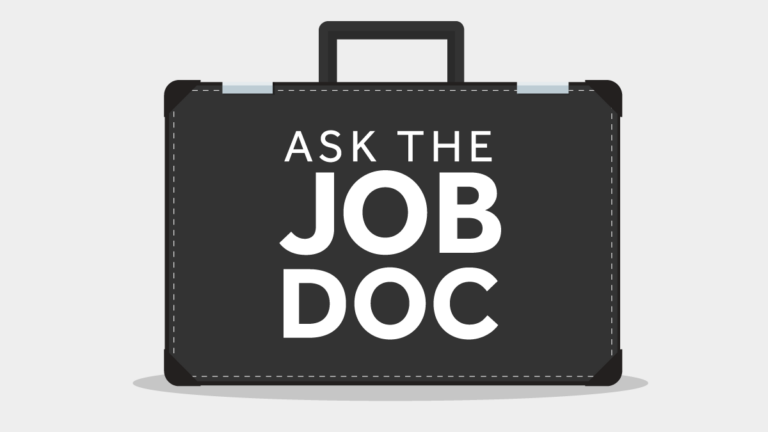Job Doc
Personal expression is important to show who you are, but there are some forms that still aren’t considered mainstream. Elaine Varelas provides some guidance on how to balance both while ensuring the most success during the interview process.
Q: I have visible tattoos and I want to apply to work in an office setting. Will I be immediately rejected? Should I disclose my tattoos? How should I navigate this while applying for a new position?
A: Tattoos are not yet considered mainstream, though they are becoming more acceptable by many generations. Some tattoos can easily be covered by clothing, while other tattoos remain visible almost always. If your tattoos can be covered by clothing, either by long sleeves or long pants, I advise you to cover them up during the interview process. Presenting any potential obstacles to being hired, like a tattoo, gauges, multiple piercings, or hair that may present as out of the ordinary during the interview process is not something that will help you get an offer over other candidates with similar skills sets and no visible obstacles.
Obviously, all of this depends on the kind of position you are interviewing for. If you are interviewing for something in drama, arts, or a highly liberal organization, many of these demonstrations of personal expression are much more accepted than more traditional employers. If you are looking for an opportunity with a mainstream employer, it would not be to your advantage to try to teach them to accept visible tattoos or other expressions of your personal style. It is not in your best interest to imagine you can change someone’s perception of how their employees should present themselves on the job.
There are many other ways to highlight your personal aesthetic and some people are much more accepting than others. You may not be rejected immediately, but you could cause hiring managers to wonder about something that has nothing to do with your capability on the job. It distracts them from focusing on your skills. Rather than provide that possibility, eliminate what could cause an objection.
Many places have dress codes and those may also apply to tattoos. Tattoos on the face or neck that are visible even with a high collar shirt may be an issue. Some candidates use make up or large bandages to overcome these obstacles. If your goal is getting the job, minimize any potential threats to your success. Learning what the dress code is through others on LinkedIn or Glass Door will give you more insight into what is acceptable at a specific workplace.
Millennials and Gen Z might consider tattoos ordinary, but other generations who may represent the majority of people making hiring decisions still don’t consider them a part of standard work attire.
Do your research and when in doubt, remove any distractions a hiring manager may have during your interview. It is better to be safe than to lose out on an opportunity.
Newsletter Signup
Stay up to date on all the latest news from Boston.com






